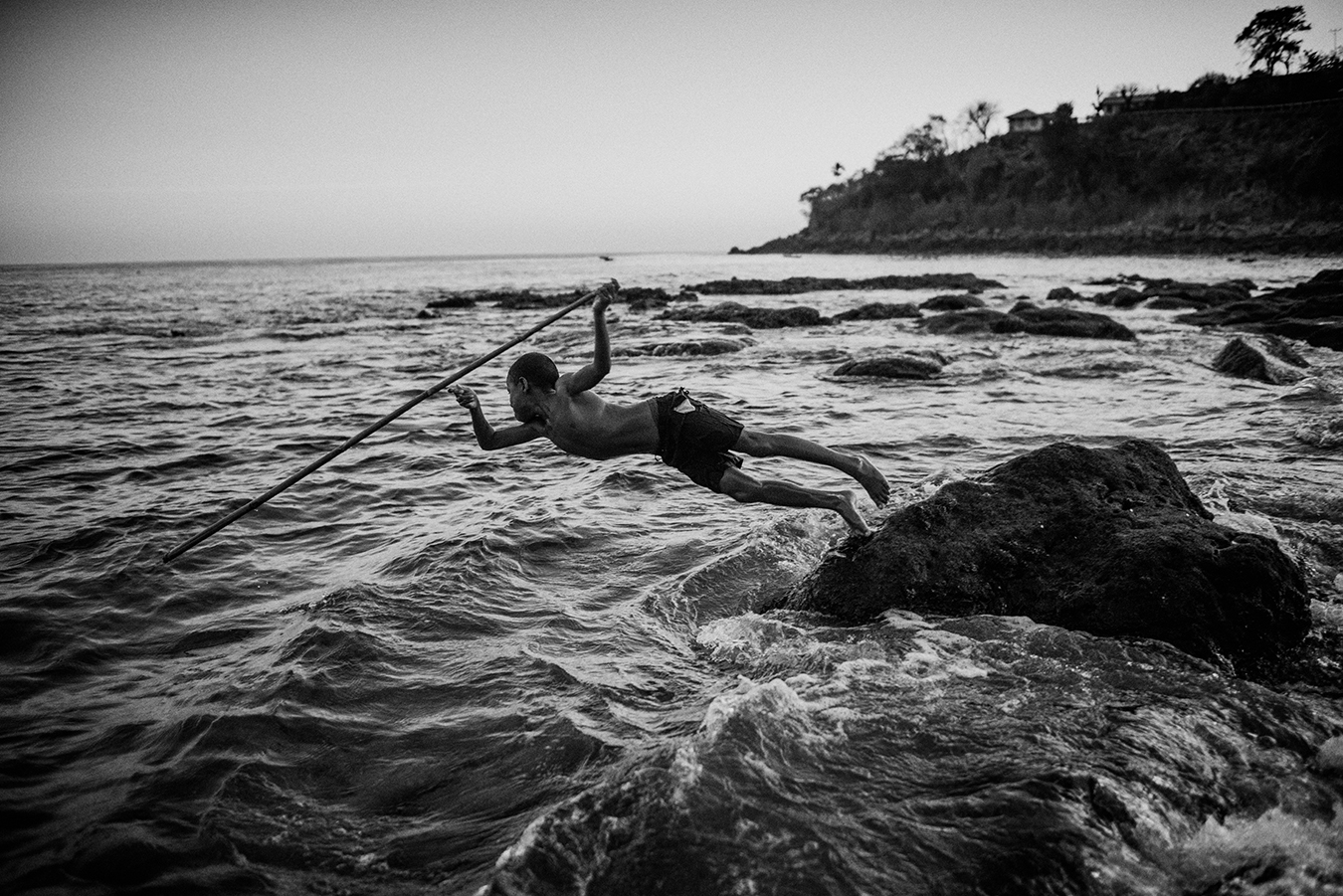Seconded By: Cynthia Boll,
Indonesia is the fourth most populous country in the world and 60 percent of its territory consists of the sea. Unquestionably, the sea has been a major element for most of its people living in the archipelago and fishing is an integral part way of living for the coastal people.
Most of the fishing tradition dates back way before Indonesia even existed. Like in Lamalera, a village in a small island of Lembata in the eastern part of Indonesia, Where whaling has been a tradition for more than 600 years. The village of 2,000 people hunts sperm whales with wooden sailboats and hand-thrown bamboo harpoons. It is the most traditional means of fishing in this modern world.
They have a strict rule to hunt only sperm whales that were spotted from their village. Though they also hunt killer whales, manta rays, dolphins, they do not hunt the endangered blue whales when spotted. They believe it was blue whales that saved and brought their ancestors to Lamalera. The Lamalera people originated from Sulawesi and migrated to the island of Lepan Batan where whaling began. A Tsunami forced them to relocate to what is now called Lamalera.
A local traditional agreement also made with neighboring villages in the mountains not to hunt on land, and the villagers in the mountain not to catch anything from the sea. Both villages meet every weekend in a trade market. Lamalera villagers barter fish and whale meat for crops and other commodities from the mountain dwelling villagers, creating a self-contained economic system. The whale meat was never traded in other islands outside Lembata.
When whales were caught, the meat is distributed among villagers, including widows from the fallen Lamafa (harpooners). The meat is not for sale and only used for the daily need of villagers in Lamalera. The harvest record kept since 1960 shows that until 2010 there were 909 whales caught. For about 50 years those whales sustained the life of 2,000 villagers. Lamalera whalers are exempt from the international ban on whaling under clause that allows similar aboriginal communities to follow traditional practices.
For the people of Lamalera, the sea is their mother who feeds and provides for them.
My Ancestors are people of the sea,
fond to venture to the vast ocean
Passing through tides without of fear,
coming through storms everyday
Wind Blows, Sail unfurled, tide crashes onshore
Brave young men, rise now, to the sea together we go…
(From Indonesian folklore song, Nenek Moyangku Seorang Pelaut)
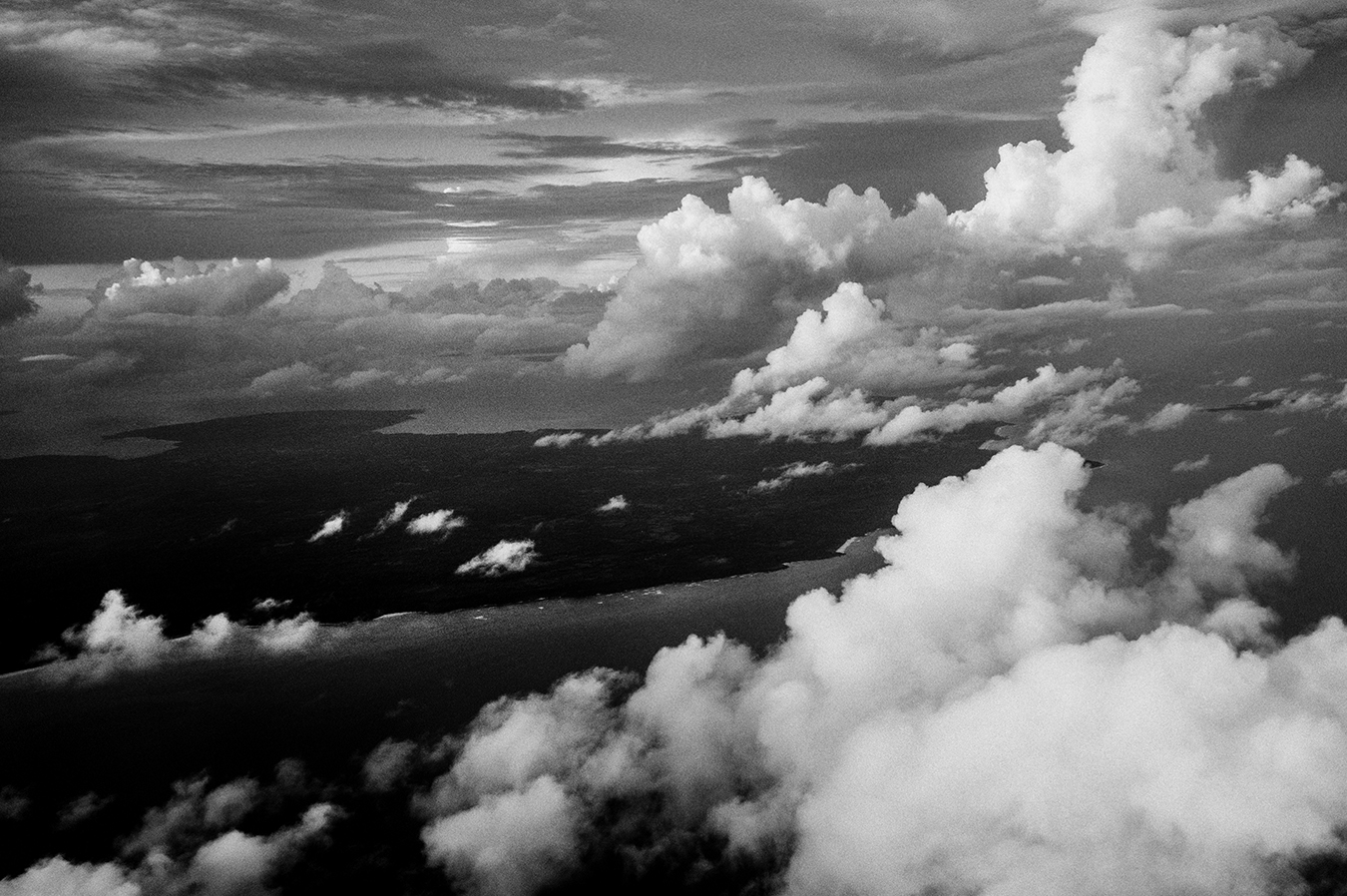
Overview of Lembata Island
An overview of Sawu sea in East Nusa Tenggara province, Indonesia which connects the Indian and Pacific oceans and serves as a key migratory route for some species of whales, dolphins and turtles. Whalers from Lamalera village in the nearby island of Lembata hunt whales as they pass through nearby waters off their village.
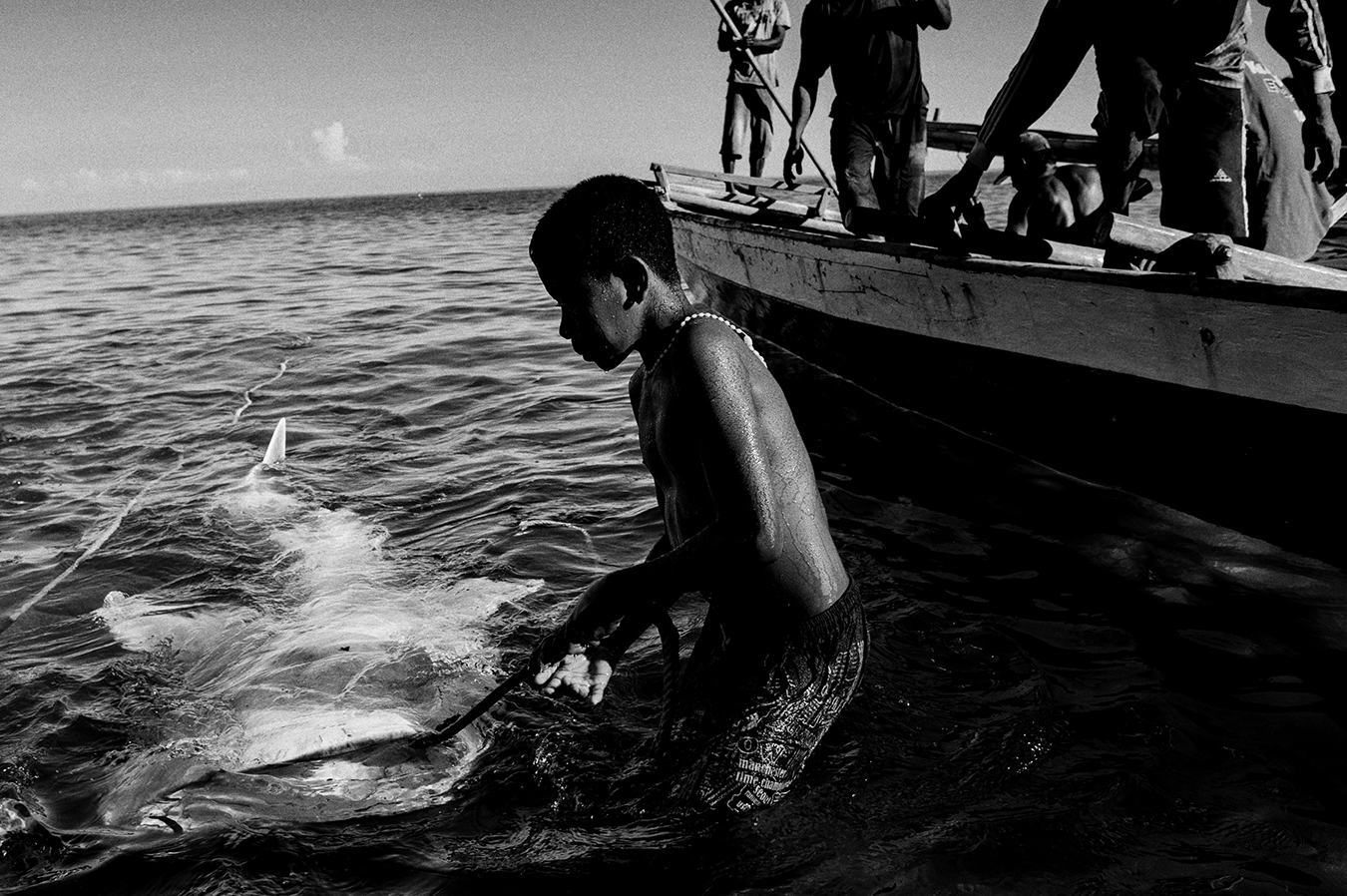
Catch of The Day
A whale shark caught during fishing is being tugged ashore in Lamalera, Lembata island, Indonesia. Lamalera is a small fishing village of 2,000 people in the east part of Indonesia where whaling has been an integral part of their life since 600 years ago, using wooden small boats, and hand-thrown bamboo harpoons to hunt.
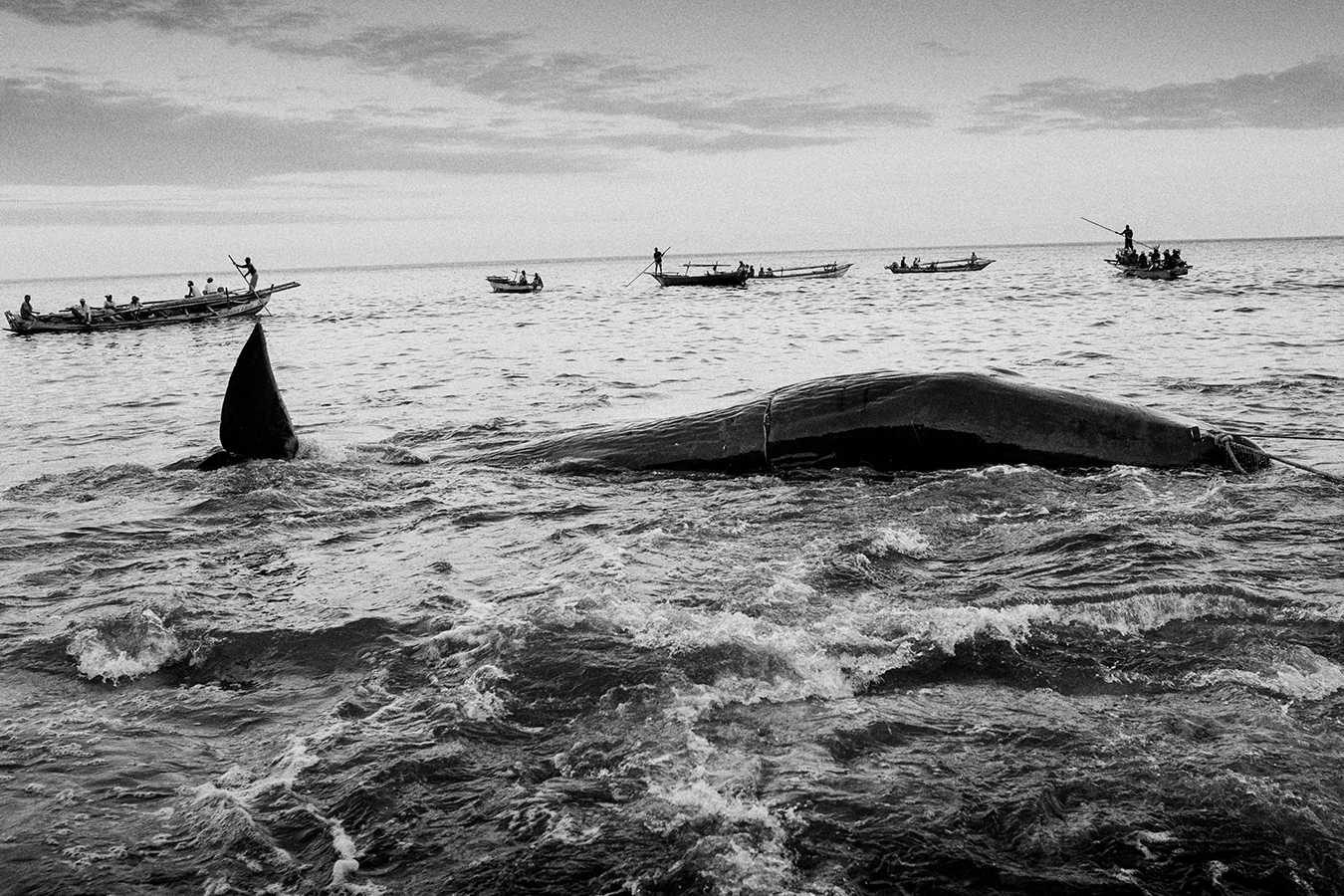
Harvest at the Sea
A sperm whale (Physeter macrocephalus) that was caught during the day’s hunt lies ashore in Lamalera village, Lembata Island, Indonesia. The whale’s meat will be distributed among family of crew members in the village the following day.
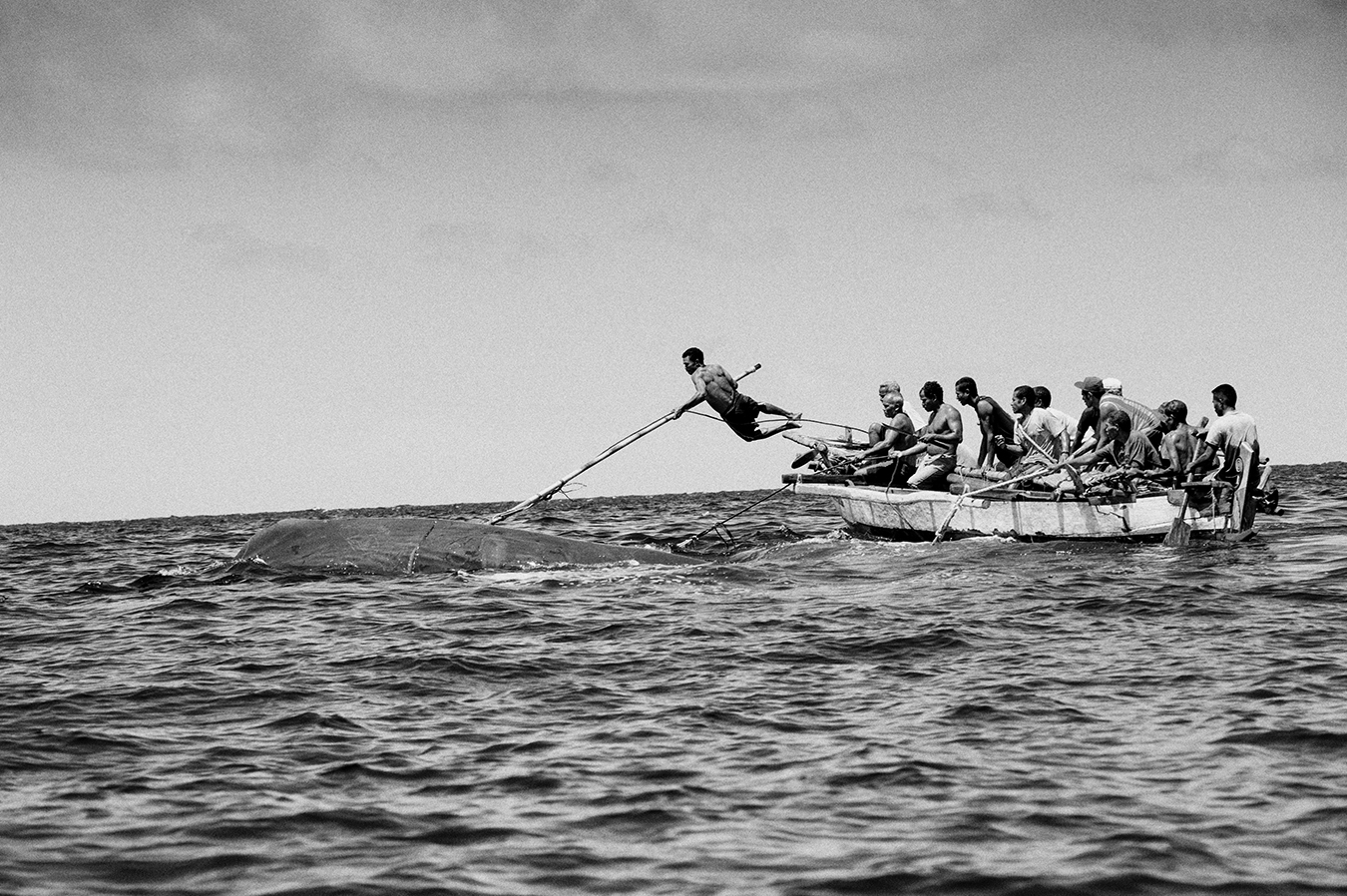
The Struggle at the Sea
Emmanuel Toba Bataona (53), a Lamafa (whale harpooner), jumps from a wooden boat to harpoon a sperm whale (Physeter macrocephalus) in Sawu sea just offshore Lembata island, Indonesia. The whalers in Lamalera caught in average 20-30 sperm whales every year to feed the village or to be used as a barter commodity with fruits and vegetables from the mountain dwellers.
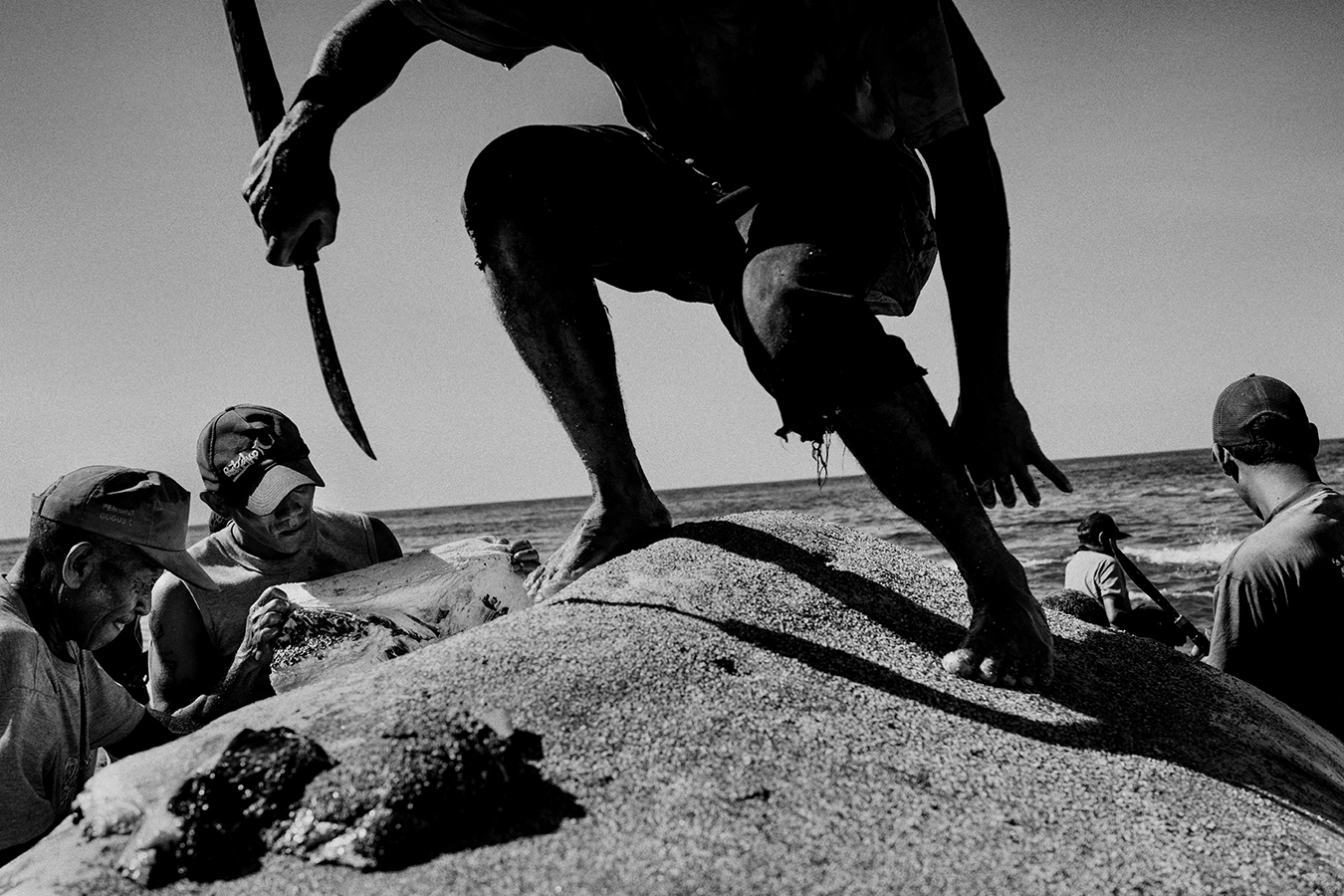
Sharing the Catch
Whalers cut sperm whale meat that was caught the previous day and divide shares for each of the crew members of the boat in Lamalera village, Lembata island, Indonesia.
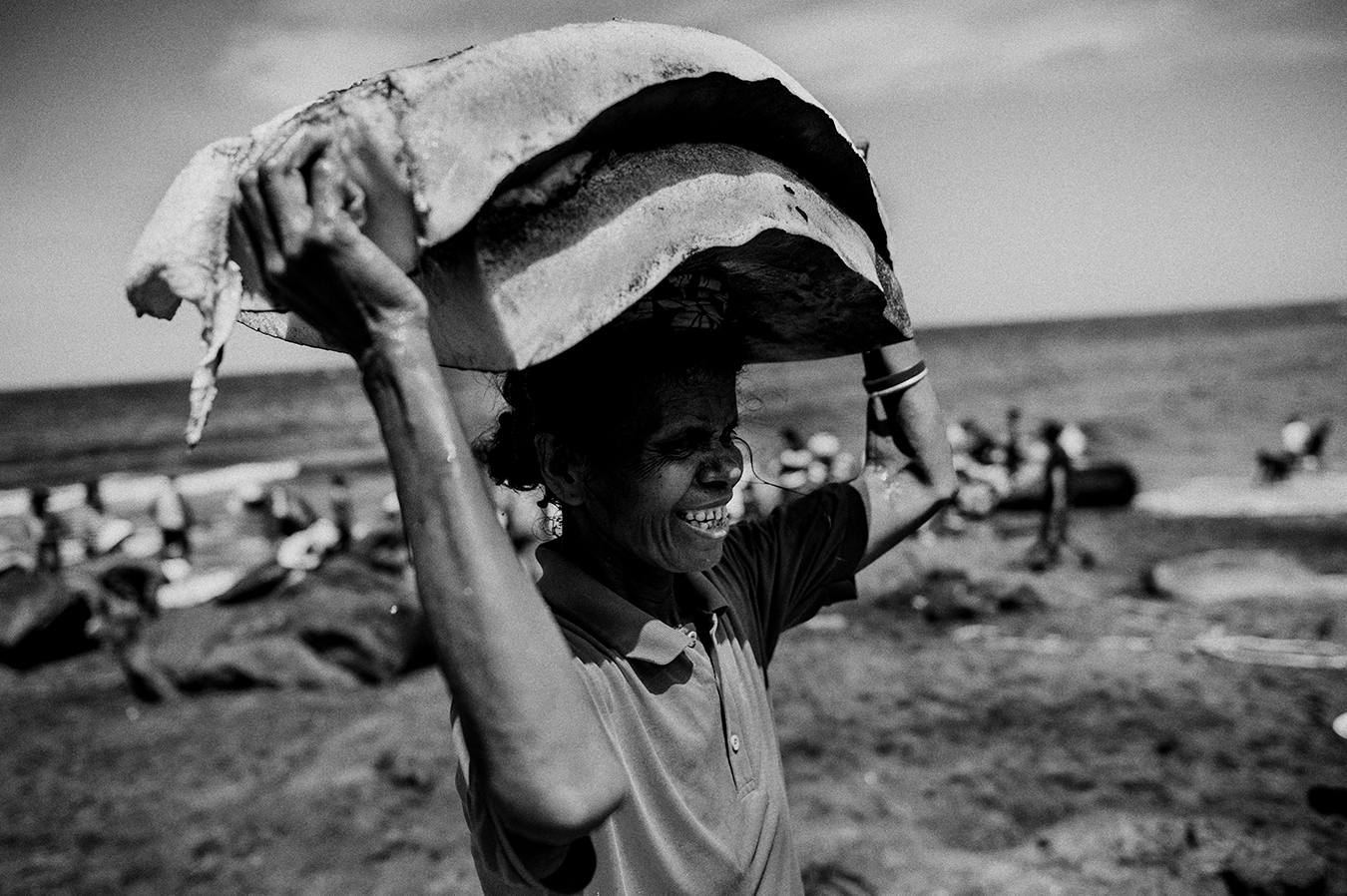
Taking Home Fish
A woman takes back her family share of the caught whale in Lamalera, Lembata island, Indonesia. The meat will be self consumed and traded with fruits and vegetables with the mountain dwellers on a weekly trade market near the village.
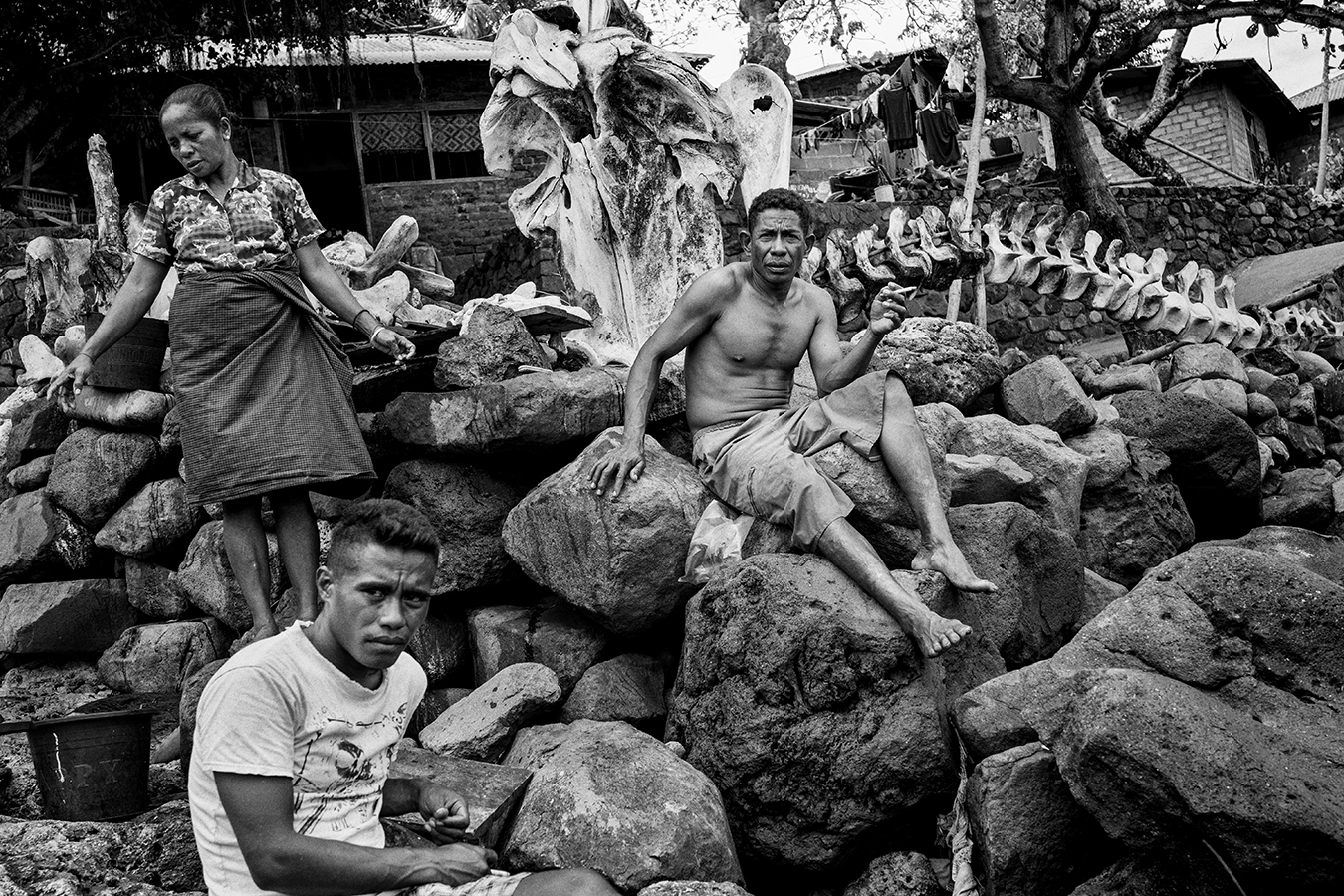
Family Time
Stefanus Fotu Bataona (47), a Lamafa (whale harpooner), relaxes with his family in front of his house in Lamalera village, Lembata island, Indonesia. Before being a Lamafa, one has to start as Matros (oarsman). A good Lamafa kills 80-100 sperm whales in their lifetime. Lamalera whalers are exempt from the international ban on whaling under International Convention for the Regulation of Whaling, that allows indigenous people to hunt whales within limits, such as to feed themselves.
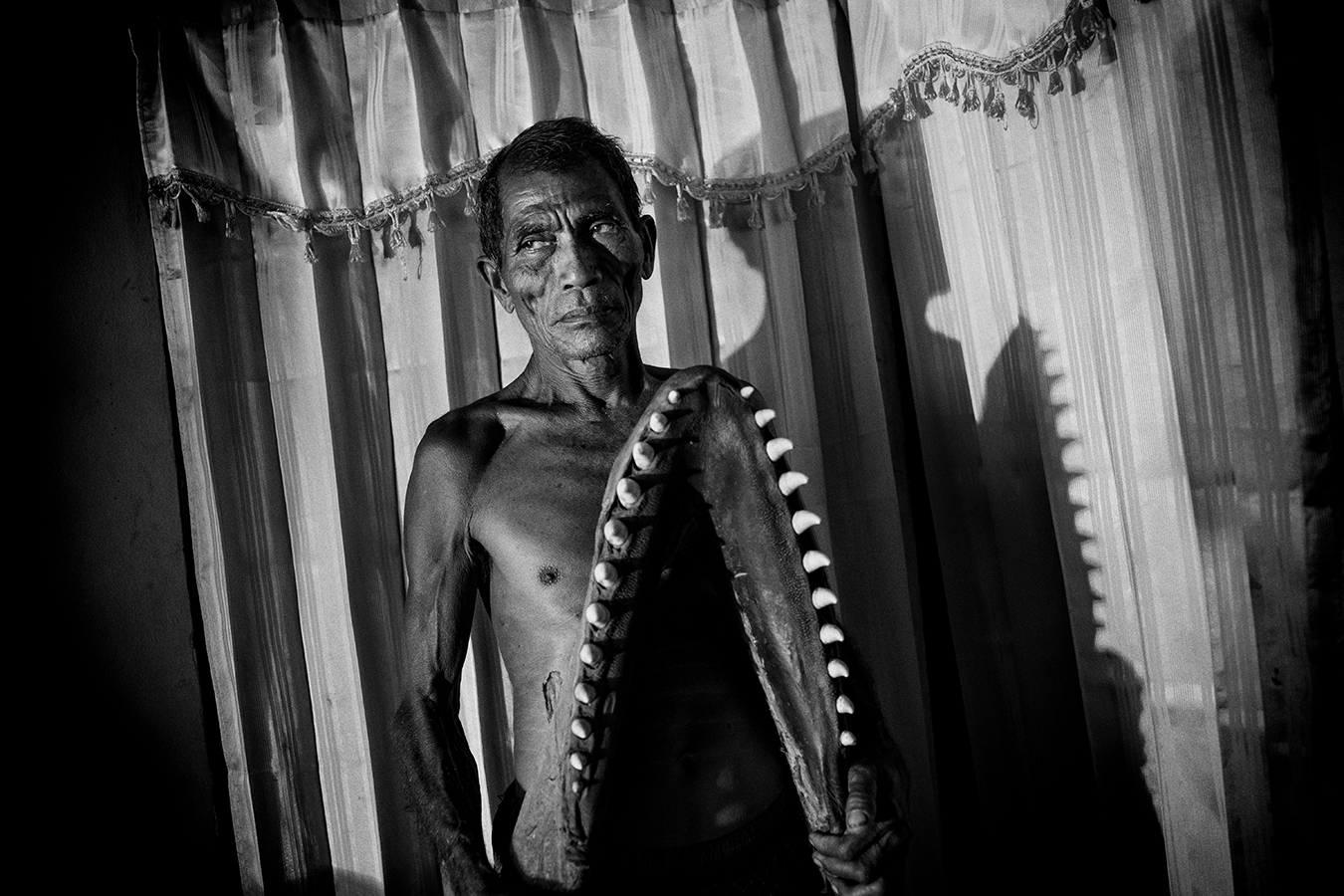
Legendary Lamafa
Elias Blio Beding (73) a retired Lamafa (whale harpooner) posed at his house in Lamalera village with a jaw of a killer whale (Orcinus orca) that he caught three years ago. Although retired, Elias still join the hunt as crew member and will make the final cut to bleed out the whale.
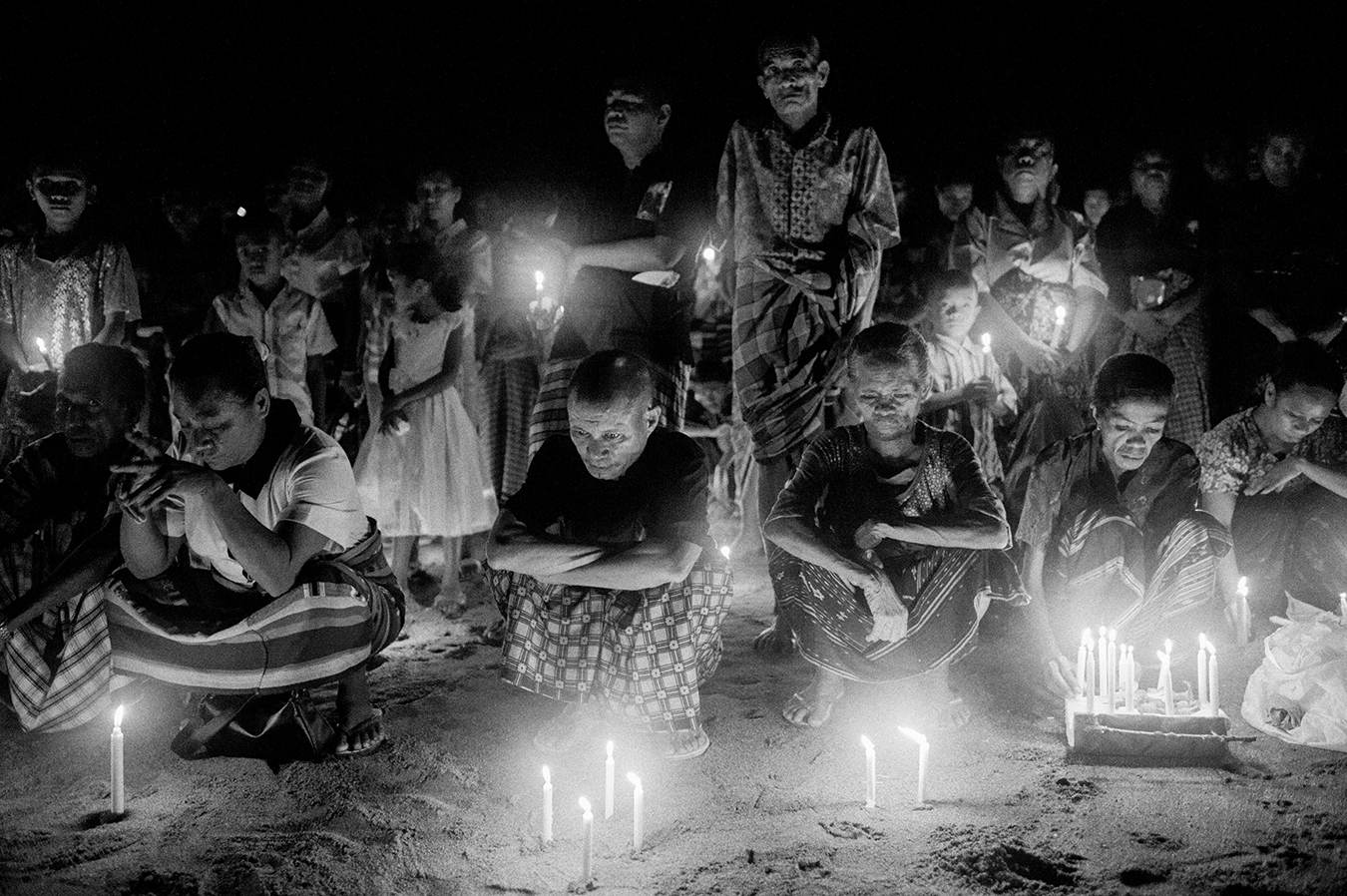
Homage to the fallen
Villagers pay their tribute and offer prayers for the fallen whalers who lost their lives while out in the sea hunting, the tribute is held every year at the beginning of hunting season in April in Lamalera village, Lembata island, Indonesia. Since 1970 about 36 whalers lost their lives while hunting in the ocean with the last casualty occurred in 2007 when a whaler got hit by a whale’s tail. The method of Lamalera whalers is simple and yet risky, it is not uncommon during a hunt to have a wooden boat capsized forcing other boats to save the whalers and continue the hunt afterwards.

